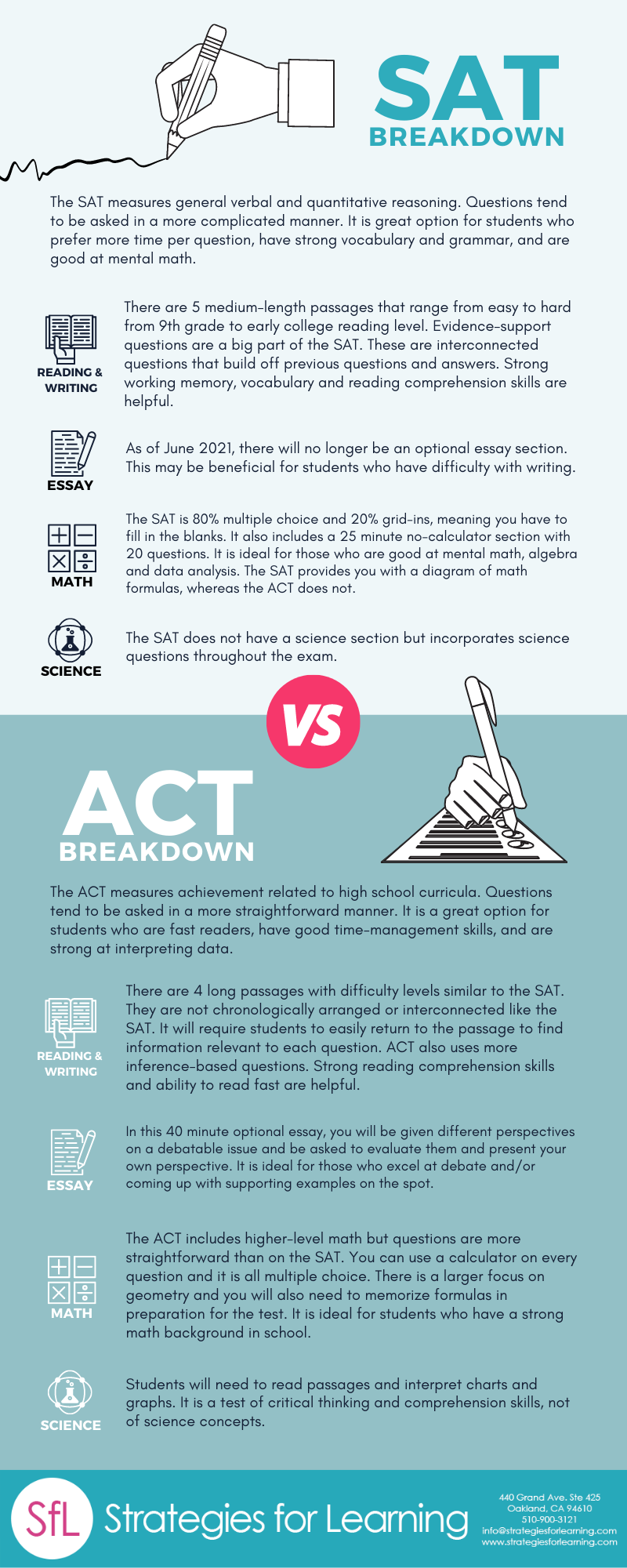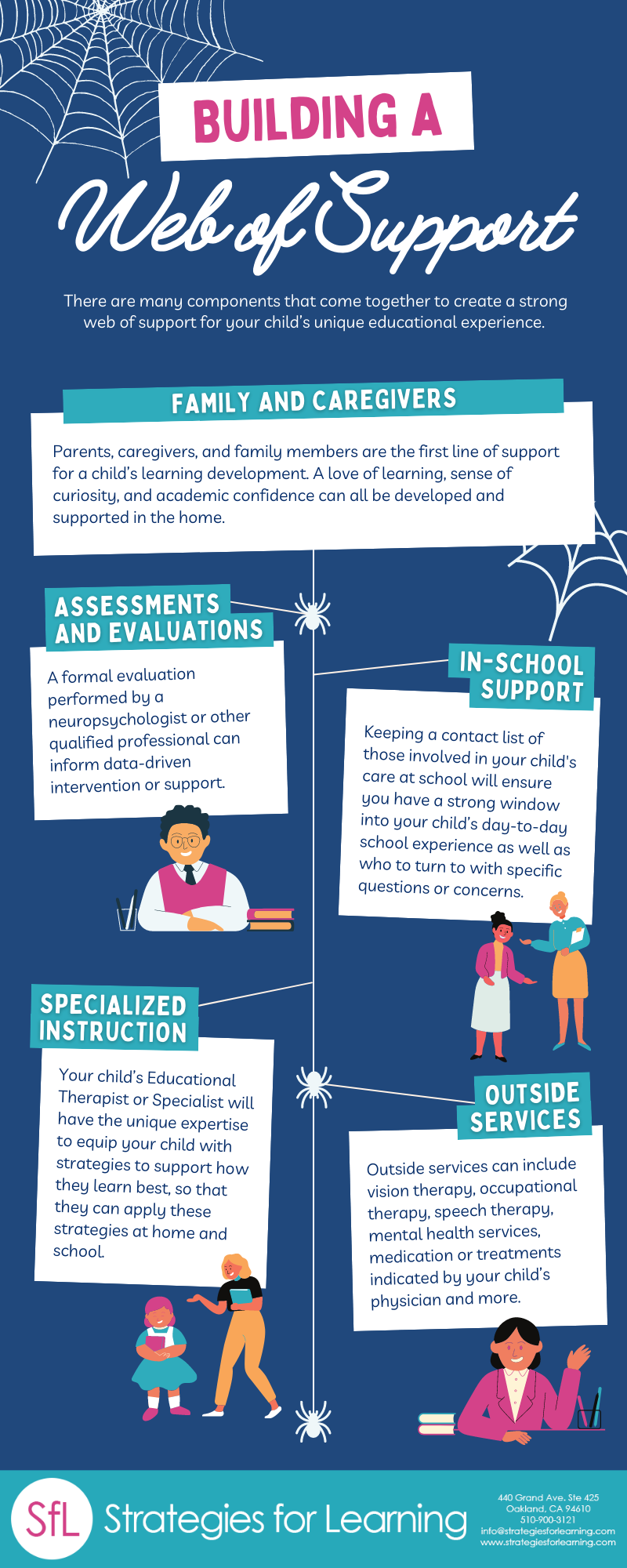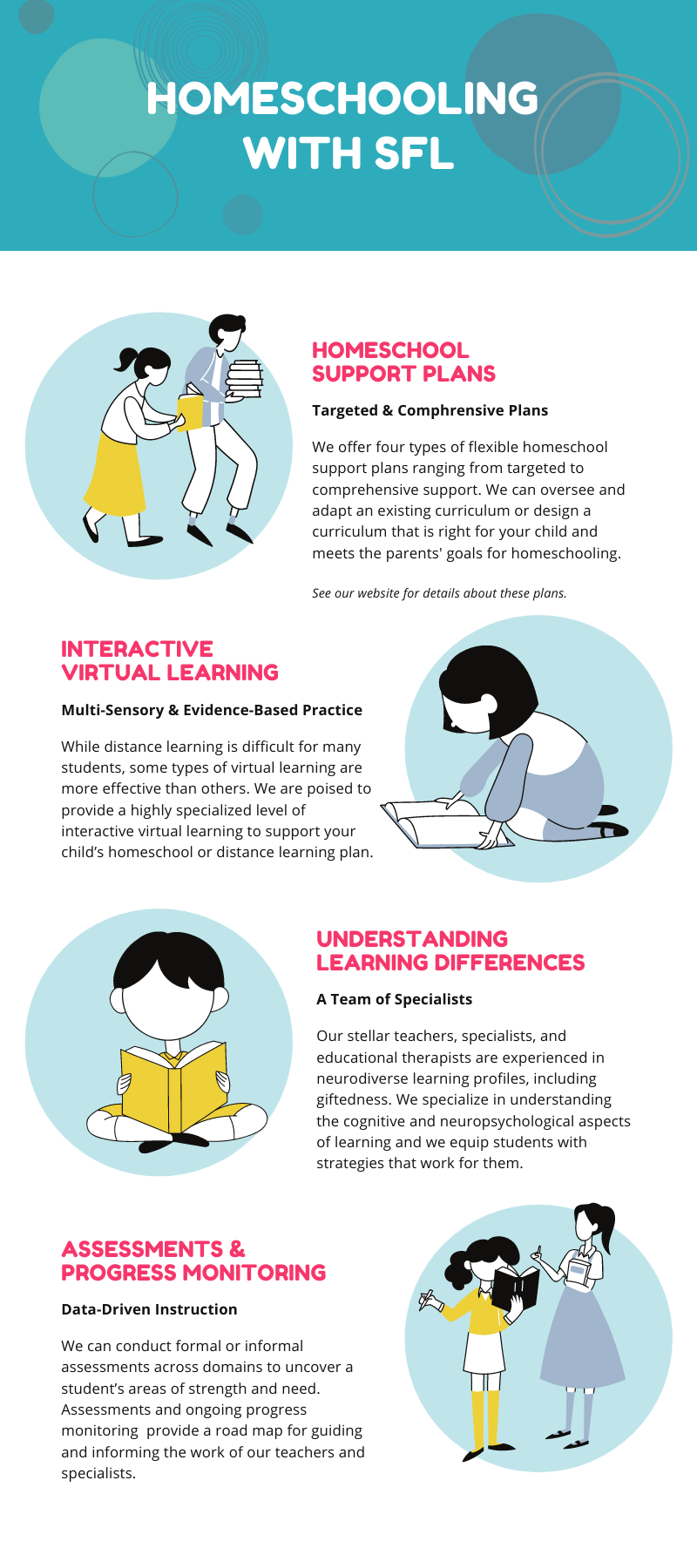No products in the cart.
SAT vs. ACT (Infographic)

Check out more test prep resources.

Check out more test prep resources.
An interview with Angela Benson, our talented clinician from Nashville, TN.
Q. What is one book and one movie you think every student should read or watch?
I couldn’t pick just one, so here are two: To Kill a Mockingbird by Harper Lee and Franny and Zooey by J. D. Salinger. They both read very well out loud and stand the test of time.
I also utilize film in my classes, and the one that stands out to me is Big Miracle which is a story about a family of gray whales trapped by rapidly forming ice in the Arctic Circle. It’s great for teaching middle school geography standards and I even have accompanying worksheets for it!
Q: What advice would you give to a student who is anxious about succeeding in school?
I would start by having a conversation with the student to identify what success in school means for them. We are all unique individuals and success can mean different things to each student as well as the strategies to achieve it.
Q: What were you like as a high school student?
I grew up with high parental expectations and was always a very high achieving student. During a part of my high school career, I attended a private school where I participated in competitions for my Latin club, was involved in theater and the writing club, played violin in junior symphony, and was part of the tennis team.
When I was pulled out of the private school for my senior year into a public school setting, I quickly became bored and disengaged. In the new school setting, I was not given the same opportunities to challenge myself. I think many students can relate to my experience.
Q: What is your dream job?
Being a teacher is my dream job in many ways. When I was younger, I wanted to be Indiana Jones, participating in archaeological digs. I also explored the idea of working for the state department because I was always very good with languages.
Now, I would say my dream job is to be a writer. I have been working on a couple of novels in the past few years so I would love to make writing more than a passing hobby.
Q: What is the most memorable thing you’ve ever learned about a student?
I taught a student in 8th grade, who now plays for the New England Patriots. He came from a very difficult family background and had goals to attend Vanderbilt University and play for the NFL. He made this dream his reality through hard work and is now doing exactly what he always wanted to do. I’m still very close to him and frequently attend his games. His journey is one that really sticks out to me.
Angela attended Belmont University in Nashville, TN for her B.A. and her M.A. She had a double major in History and Religious studies in undergrad and earned her M.A. in Education. That work led her to Union Theological Seminary in New York City where she earned an M.A. in Systematic Theology and Ethics with a focus in Education and Counseling from CSU Eastbay.
Areas of Focus: Secondary Education, Written Expression, Language Arts, English/Literature/Grammar, Social Studies/History, Test Prep, Latin, Executive Function, Feuerstein’s Instrumental Enrichment, Critical Thinking Skills, Organizational & Study Skills, Metacognitive Strategies, Social-Emotional Learning

Schedule an initial consultation.
Though the outward signs may appear similar, dyscalculia and math anxiety are different.
Continue readingThere are many people and components that come together to create a strong web of support for your child’s educational experience. While parents and caregivers are a vital part of this support, you are not alone! We and other professionals are here to problem solve, provide recommendations, and strengthen your child’s support. There is no one right path, and each child’s journey and web of support will look different and likely evolve over time. Your child’s well-being is at the center and brings all of the people and pieces together.
Who and what might be part of your child’s web of support?
Parents, caregivers, and any other family members are the first line of support for a child’s learning development. While formal learning may often happen outside of the home, a love of learning, sense of curiosity, and academic confidence can all be developed and supported in the home. If at a loss, educational professionals (including those at Strategies for Learning) can provide suggestions of ways to support your child’s learning in the home.
Your child’s school team. While your child likely has designated classroom teachers, their team may also include a learning specialist, case manager, administrators, school psychologist or counselor, in-school specialists, and/or other support staff. If you’re not sure who all is assigned to support your child, ask your child’s classroom teacher or case manager for a list of contacts. This will ensure you have a strong window into your child’s day-to-day school experience as well as who to turn to with specific questions or concerns.
While your child may likely receive some amount of informal or formal assessment at school, an additional evaluation performed by a neuropsychologist or other qualified professional is sometimes recommended in order to get a more in-depth and nuanced picture of your child’s needs. Neuropsychologists can perform comprehensive assessments and can inform data-driven intervention or support.
While most students will receive some amount of support, accommodations, and/or modifications within their school experience, Educational Therapy or the equivalent will often be recommended in order to further support your child. Your child’s Educational Therapist or Specialist will have the unique expertise to equip your child with strategies to support how they learn best, so that they can apply these strategies to other learning environments such as their home or school.
These can be identified and recommended by a qualified professional such as your child’s physician or a neuropsychologist performing an evaluation for your child. Outside services can include but are not limited to vision therapy, occupational therapy, speech therapy, mental health services, medication or treatments indicated by your child’s physician and more.
Don’t know where to start? If feeling overwhelmed, one simple step you can start with is to make a consultation appointment with any organization or person with experience in educational advocacy or guidance. At Strategies for Learning, this is one of many services we offer to help families determine next steps to best support their child.
Schedule an initial consultation!
An interview with Deshon Smith, our talented clinician located in Oakland, CA.
Q. What advice would you give to a student preparing for college?
Focus on developing a routine. This could include a balance of academics, work, volunteering and downtime. In college, no one will tell you to go to your classes and keep you accountable. Developing a good routine now when you are in high school will help you with decision-making and time management when you are in college. I would also advise students to choose good company.
Q. What do you think are three most important skills high school students should work towards?
First, you need discipline to succeed in anything, it shapes your character. Students should also work on their communication and expressive language skills. This will be especially important when interviewing for colleges or jobs. Memorization would be another important skill that ties closely with communication skills. For example, being able to recall facts from your college application, resume, or about the school or company is important during interviews.
Q. What advice would you give to a parent concerned about the learning loss from this past year?
Do what they can to engage their child through active learning. Incorporating hands-on, and multi-sensory activities will help with engagement as well as having a variety of activities.
Q. What motivates you?
First, it would be my faith and my belief in God. I think it’s important to stay grounded spiritually because life is not always easy. I rely on my faith to get me through the challenges of life. Second, it would be my support network which includes my family and the people I work with. They help me to grow and give me a sense of purpose.
Q. What is your dream vacation?
It would be to travel through the amazon rainforest in Brazil. I would love to learn about their culture and their martial arts dance called capoeira!
Deshon earned his B.S. in Biology at the Notre Dame de Namur University in Belmont, CA. and his M.S. Education with a concentration in online teaching and learning from CSU Eastbay.
Areas of Focus: Executive Function, Organization/Study Skills, Foundational Math, Algebra I and II, Geometry, Statistics, Biology, Anatomy, Chemistry, Technology Integration, Online Learning, Test Prep (SAT, ACT)
An interview with Vanessa Fontana-Berul, our beloved clinician located in El Cerrito, CA.
Q: What is one question you like to ask every student you start working with?
“What do you like to read?”
Q: What do you think are two most important characteristics a teacher should have?
Consistency and Curiosity.
Good teaching is like a seed, it needs to be planted and it takes time for it to grow.
I like to model curiosity to my students- it is the key to learning. It is important for young people to observe adults have interest and curiosity.
Q: You are self-quarantined for a week, what three items would you like to have with you?
Turner classic movies, lots of coffee, speed dial to Grubhub! (bonus: favorite movie-Red Balloon)
Q: What is the most memorable thing you’ve learned from a student?
Their knowledge of penguins! Specifically, Macaroni Penguins.
Q: What advice would you give to a parent who is concerned about the learning loss from this past year?
I would say children are very resilient and it may seem like they lost time but it is important to reflect on what they’ve gained. It’s important to see things in a bird’s eye view and not in a rabbit hole. Reflect on silver linings like the quality time they’ve gained with parents this past year.
Vanessa holds a Masters in Education, an Elementary Montessori credential, training in the Orton-Gillingham methodology and has over 20 years experience working with intervention specialists, creating learning plans that meet the needs of individual children.
Areas of Focus: Literacy, Orton-Gillingham, Reading Comprehension/Receptive Language, Written/Expressive Language, Executive Function, Organization and Study Skills, Social Pragmatic Skills Instruction, Behavioral Coaching/Instruction/ Dual Language Learners , Montessori and Reggio Inspired instruction
An interview with Julia Baker, our talented clinician from Woodstock, Georgia.
Q: What is one question every parent should ask school teachers about his/her child’s learning?
J: Parents should ask the teacher to identify the student’s areas of strength and weakness. Identifying weaknesses is important because the parent could then ask for specific resources to target those areas identified by the teacher.
Q: What do you think are two most important skills students should work towards?
J: Executive Functioning and Study Skills are two skills that go hand in hand are needed for students to become successful academically.
Q: How would you describe your teaching style in three words?
J: Caring, resourceful, and passionate.
Q: You are stranded on a desert island, what four things do you bring?
J: A book, because I love reading, and it allows me to escape my reality. I would bring a knife (for protection), matches (to keep warm), a satellite cell phone (when I am ready to leave!).
Q: In five words, what advice would you give to a struggling student to boost their confidence?
J: Persevere and never give up!
Julia holds an Ed.D. in Reading and Literacy from Capella University, a M.S. in Literacy Studies and an M.S. in Multicultural Education. For the past 20 years, she has taught Language Arts and Social Studies as a special education teacher in both New York and Georgia. Julia’s professional interest lies in discipline-specific literacy and how it supports struggling readers across the curriculum.
Areas of Focus: Executive Functioning, Study Skills, Language Arts, Reading Comprehension, Reading Instruction, Discipline-Specific Literacy Strategies, Metacognitive Strategies

Learn about our services.

Learn about our Homeschool Plans.